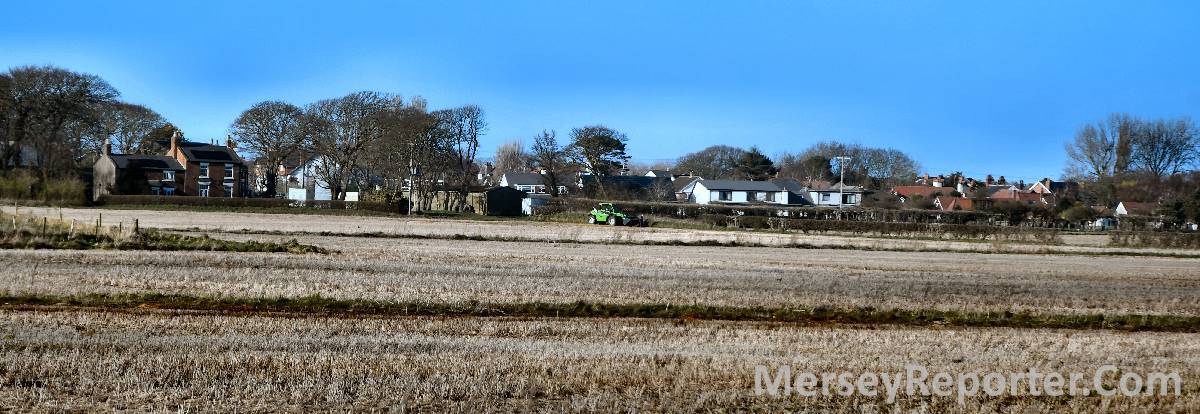CLA welcomes review of environmental regulation

A new review,
commissioned by Defra Secretary of State Steve Reed and led by
economist Dan Corry, has found the current system of environmental
regulation is outdated, inconsistent and highly complex.
The CLA (Country Land and Business Association) has welcomed a
review of environmental regulation that reflects several of the
CLA’s recommendations.
The review concludes that a:- 'bonfire' of regulations
is not the solution, but it makes 29 recommendations for
streamlining regulation, which the Government says it is:-
"actively considering."
9 measures with the greatest impact for growth and nature recovery
will be fast tracked.
The Government says work has already begun on:-
-
Lead regulator: A single, lead regulator for major infrastructure projects to aid developers seeking planning approvals from multiple authorities.
-
Revamping environmental guidance: Rapidly reviewing the existing catalogue of compliance guidance, including:- on protecting bats, will identify opportunities to remove duplication, ambiguity, or inconsistency.
-
Planning permit portal: Defra will convene the environmental regulators to set out the work required to upgrade their digital systems for planning advice, including a single planning portal for all agencies.
-
New Defra Infrastructure Board: This will accelerate the delivery of major infrastructure projects by facilitating greater collaboration and stronger oversight within Defra and its arms-length bodies.
-
Green finance boost... A new industry funded Nature Market Accelerator will bring coherence to nature markets.
Country Land and Business Association (CLA) President Victoria Vyvyan said:- "The current system of environmental regulation is overly complex and hard to navigate, and needs to be streamlined to protect nature while allowing development to take place. While Dan Corry's review does not recommend a:- 'bonfire' of regulations, it does seek to modernise the system and help drive growth, which is welcome. The report reflects many of the CLA’s recommendations such as action to unlock private sector funding, improving regulatory processes and guidance, and simplifying planning for nature-based solutions, but there is a lot of work to do in Defra before they are realised. Having a lead regulator for major infrastructure projects and establishing an Infrastructure Board might speed up approvals and unblock barriers to development at an early stage, but the system must work with affected farmers and landowners. Our members can help deliver housing and infrastructure projects while supporting nature recovery, but they must be part of the process."
PM tells Councils to prove action on pothole plague to unlock extra cash and reveals £4.8bn for major roads
THE public will now
see exactly what's being done to tackle potholes, as the Government
demands Councils prove their progress or face losing cash.
From mid-April, local authorities in England will start to receive
their share of the Government's record £1.6bn highway maintenance
funding, including an extra £500m; enough to fill 7 million potholes
a year. But since:- Monday, 24 March 2025, all Councils in England
must now publish annual progress reports and prove public confidence
in their work. Local authorities who fail to meet these strict
conditions will see 25% of the uplift (£125m in total) withheld.
Also the Transport Secretary has unveiled £4.8bn funding for 2025/6
for National Highways to deliver critical road schemes and maintain
motorways and major A-roads.
This cash will mean getting on with pivotal schemes in construction,
such as the A428 Black Cat scheme in Cambridgeshire, and starting
vital improvements to the A47 around Norwich and M3 J9 scheme in
Hampshire, building thousands of new homes, creating high-paid jobs,
connecting ports and airports, to grow the economy and deliver the
Plan for Change.
It comes as figures from the RAC show drivers encounter an average
of 6 potholes per mile in England and Wales, and pothole damage to
cars costs an average £600 to fix. According to the AA, fixing
potholes is a priority for 96% of drivers.
This Government is delivering its Plan for Change to rebuild Britain
and deliver national renewal through investment in our vital
infrastructure which will drive growth and put more money in working
people's pockets by saving them costs on repairs.
Prime Minister Keir Starmer said:- "The broken roads we
inherited are not only risking lives but also cost working families,
drivers and businesses hundreds; if not thousands of pounds; in
avoidable vehicle repairs. Fixing the basic infrastructure this
country relies on is central to delivering national renewal,
improving living standards and securing Britain's future through our
Plan for Change. Not only are we investing an additional £4.8
billion to deliver vital road schemes and maintain major roads
across the country to get Britain moving, next month we start
handing Councils a record £1.6 billion to repair roads and fill
millions of potholes across the country. British people are bored of
seeing their politicians aimlessly pointing at potholes with no real
plan to fix them. That ends with us. We've done our part by handing
Councils the cash and certainty they need; now it's up to them to
get on with the job, put that money to use and prove they're
delivering for their communities."
The Transport Secretary, Heidi Alexander, said:- "After years
of neglect we're tackling the pothole plague, building vital roads
and ensuring every penny is delivering results for the taxpayer. The
public deserves to know how their Councils are improving their local
roads, which is why they will have to show progress or risk losing
25 per cent of their £500m funding boost. Our Plan for Change is
reversing a decade of decline and mending our pothole-ridden roads
which damage cars and make pedestrians and cyclists less safe."
To ensure Councils are taking action, they must now publish reports
on their websites by 30 June 2025, detailing how much they are
spending, how many potholes they have filled, what percentage of
their roads are in what condition, and how they are minimising
streetworks disruption.
They will also be required to show how they are spending more on
long term preventative maintenance programmes and that they have
robust plans for the wetter winters the country is experiencing;
making potholes worse.
By the end of October, Councils must also show they are ensuring
communities have their say on what work they should be doing, and
where. The public can also help battle back against pothole ridden
roads by reporting them to their local Council, via a dedicated
online portal.
To further protect motorists given continued cost-of-living
pressures and potential fuel price volatility amid global
uncertainty, the Government has frozen fuel duty at current levels
for another year to support hardworking families and businesses,
saving the average car driver £59.
Edmund King, AA president and member of the Pothole Partnership,
said:- "Getting Councils to show value for money before
getting full funding is a big step in the right direction, as it
will encourage a more concerted attack on the plague of potholes. At
the same time, local authorities can share best practice, so others
can learn what new innovations and planned maintenance techniques
have worked for them."
The £4.8bn for National Highways will protect the country's
strategic road network, which provides critical routes and
connections across the country for people, businesses and freight to
help drive for growth as part of Plan for Change.
The £4.8bn includes:- a record £1.3bn investment to keep this vital
network in good repair, so the network remains fit for the future,
and £1.8bn for National Highways' daily operations that are critical
to ensuring the network runs safely and smoothly for millions of
people and businesses that rely on it every day. As well as £1.3bn
for essential improvement schemes to unlock growth and housing.
Since entering office, the Government has approved over £200m for
the A47 Thickthorn Junction, and £290m for M3 Junction 9 plus £90m
for local road schemes like the A130 Fairglen Interchange, the
South-East Aylesbury Link Road, the A350 Chippenham Bypass, the A647
scheme in Leeds. This is a total of over £580m for schemes to get
Britain moving.

.jpg)








